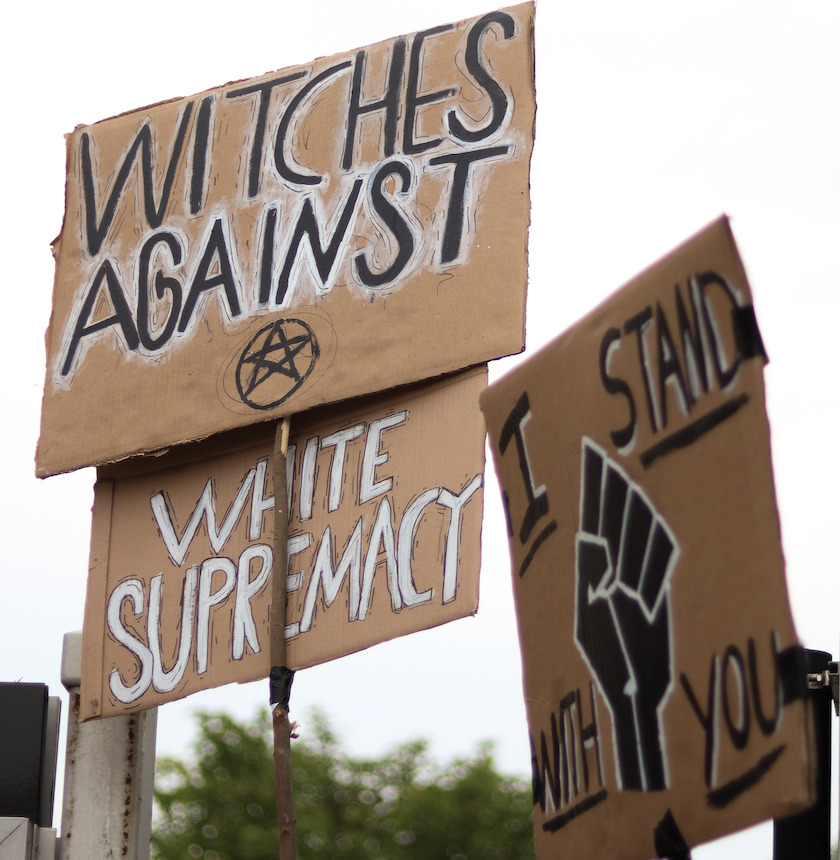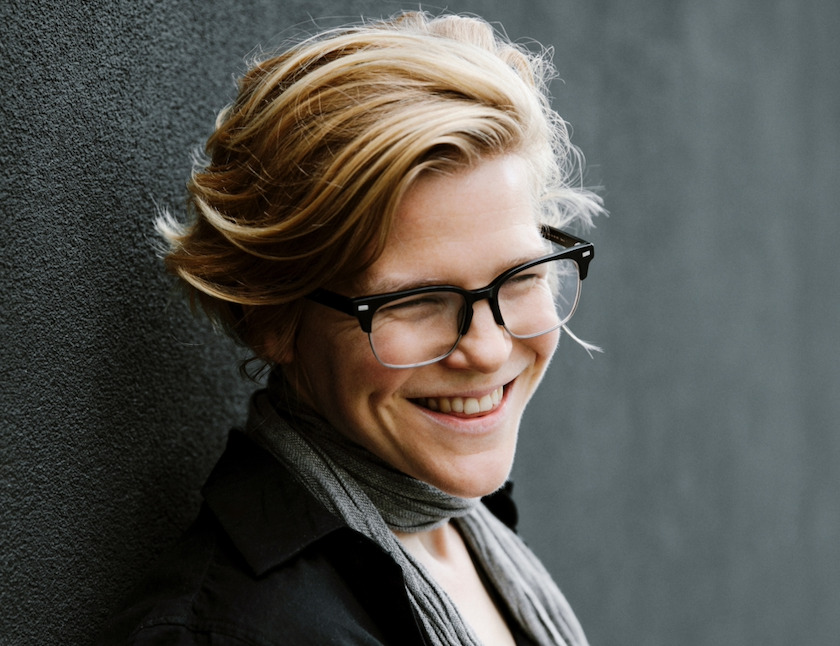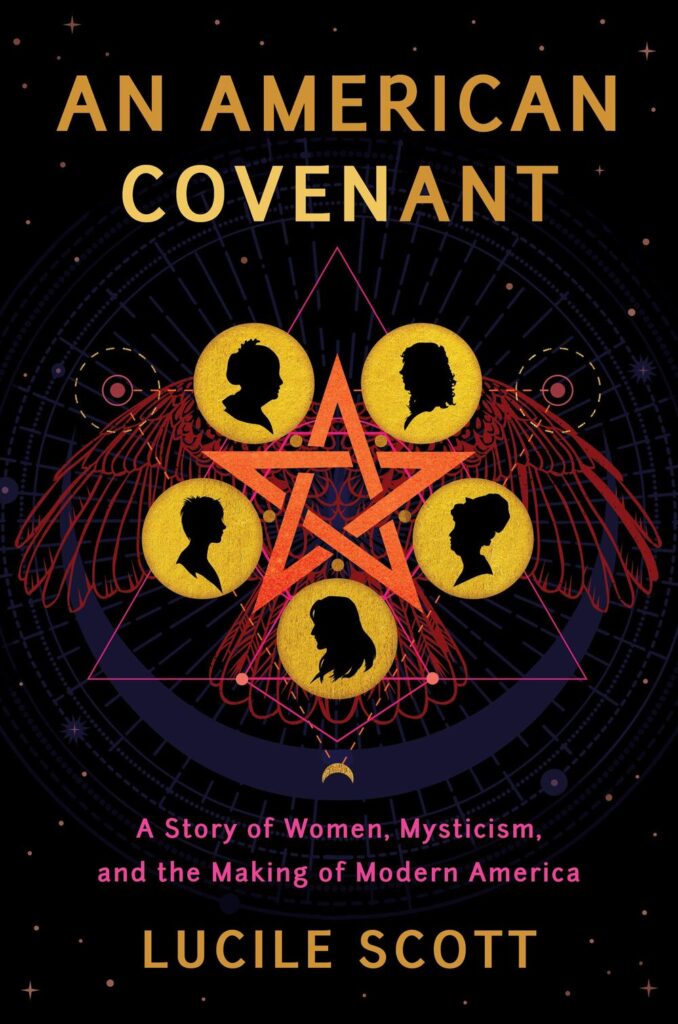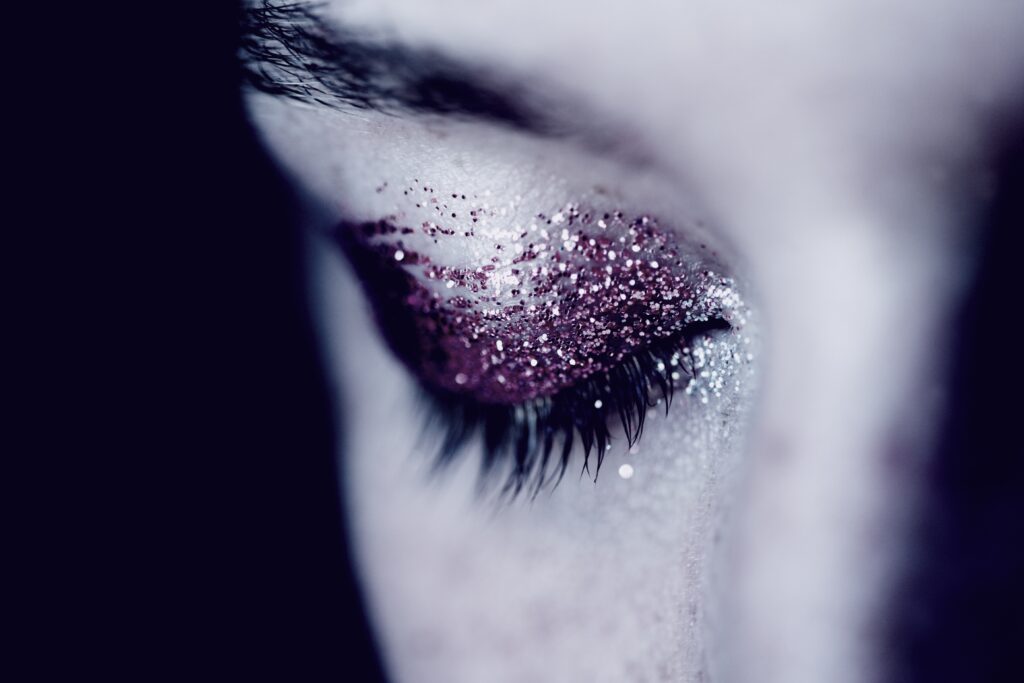Witchy women: An interview with Lucile Scott
A queer author takes readers into the heart of mysticism with a new book for uncertain times.
In An American Covenant: A Story of Women, Mysticism, and the Making of Modern America, debut author Lucile Scott, readers can join the author on a journey into the deep and rich history of mystic resistance and five women who transcended the expected to transform America. For many marginalized groups ostracized by organized religion, there is power and validation — especially for women — in altar-building, crystal-carrying, Resistance-leading, feminist witchcraft.

For centuries, women who emerge as mystic leaders have played vital roles in American culture. For just as long, they’ve been subjugated and ridiculed. Today, women and others across the nation are once again turning to their mystic powers to #HexThePatriarchy and help fight the forces that seem bent on relegating them to second-class citizenry. Here’s our chat:
What motivated you to write the book?
Prior to writing this book, the mystic and I had long had a touch-and-go relationship. I first began dabbling as a Kentucky teenager. I further submerged myself in my early twenties while basking in the glitter of urban queer culture for the very first time. But I’d always shied away from explicitly proclaiming myself a true devotee, a loud and proud witch. And I wondered why. Was it some kind of internalized misogyny, a desire not to be seen as that kind of a woman? Perhaps some bone-deep terror of accessing the depths of myself, both light and shadow, as mystic journeys generally necessitate?

Part of the power and pull of religion is the bridge it builds to a tradition and history bigger than you. So I began digging about the past, to see if by unearthing and connecting the lineage of the divine feminine and the feminist mystic in America for myself, I might alter my own relationship to it. Out of centuries of American female mystic leaders five soon called to me, and they are the five women whose stories An American Covenant tells. But different people may find different American mystics beckon. Anyone can tap into this powerful American heritage. In fact, at my virtual book launch, three witches from the arts collective THIRD SPACE—of which I am a part—did a spell to help people do just that by summoning their own American mystic. A four-year-old in attendance named Larkin reported back that her mystic was herself.
Why is it particularly timely and relevant now? Do you think your spiritual beliefs ultimately went against Williamson’s shot at president?
Two years ago, a feminist astrologer told me that, in 2020, the world will begin transitioning into a 2,000-year era of either matriarchy or chaos, communal peace and love or tribal fear and loathing—the choice was ours. We now know she was rather on point. The nation stands at a pivotal moment. And it has grown exceedingly clear that reasoned rhetoric alone cannot combat the rampaging “dark psychic forces” running amok in America that Marianne Williamson spoke about in her campaign. The feminist mystic, be it witchcraft or the more New Age practices Marianne preaches, offer a counterforce—and people have been turning to that force in increasing numbers since 2016.
Because in most American mystic traditions, the natural world, including each and every one of us, stands as divine as anything on high in the sky. This idea has long begat radical notions that regardless of race, gender or creed, we all have an equal right to a decent life here on earth. However, for hundreds if not thousands of years, we’ve been taught to stamp out this threat to the patriarchal order. We’ve jailed and mocked feminist mystics, calling them a witch, a bitch and satanic, or just weak, silly and muddleheaded. As such, people wanted desperately to discount Marianne.

I supported Elizabeth Warren for President in the primary, but I think much of what Marianne was saying—from the need for Reparations to the need for a domestic Department of Peace aimed at addressing the undergirding causes of crime, from trauma to lack of opportunity, not only prosecuting it—was worth hearing. In fact, though it may have a slightly different spin (#DefundThePolice), much of her message has garnered more support and attention as this time of tumult has continued to unfold.
How diverse is this particular spiritual community today in the LGBTQ community? And are there covens in Brooklyn? In the Bay Area? In Silicon Valley?
Yes, there are covens in Brooklyn, the Bay Area, Silicon Valley and most other American cities—and even in many rural areas. Nationwide, witch rituals occur in witchy and New Agey stores, on rooftops, in parks, in empty session rooms in feminist houses of domination, in living rooms belonging to doctors and lawyers and business executives.
These movements have long appealed to and empowered those denied—but demanding—access to our “self-evident” founding rights. Women have been drawn to the mystic by the message that they, too, can direct dial the divine via their own body, instead of being told that those same bodies are human sin and weakness incarnate. Queer folks have long tapped the power of the liminal space to build their own affirming culture in the face of a mainstream one that spurns them as some spectral threat to civilization. Many people of color have turned to mystic traditions with roots far older than the idea of a New World where they are relegated to second-class citizenry.
Thoughts on why we shouldn’t have a fixed or stereotypical image of a ‘witch’?
The population of people who currently identify as a witch is as diverse as this appeal. Based on generation, this may include a slightly different approach. For example, I’ve noticed more Boomers seem drawn to formal Craft movements that grew popular in the ‘60s and ‘70s, from Gardnerian Wiccan to Reclaiming. Some—though certainly not all—of these 20th century traditions are based in binaries and exclusive of trans people, however, which has greatly limited their appeal to younger generations. Thankfully, the Craft has evolved on to queer every box and fully embrace the power of the liminal.
For more information on Lucille Scott and An American Covenant, go here.






